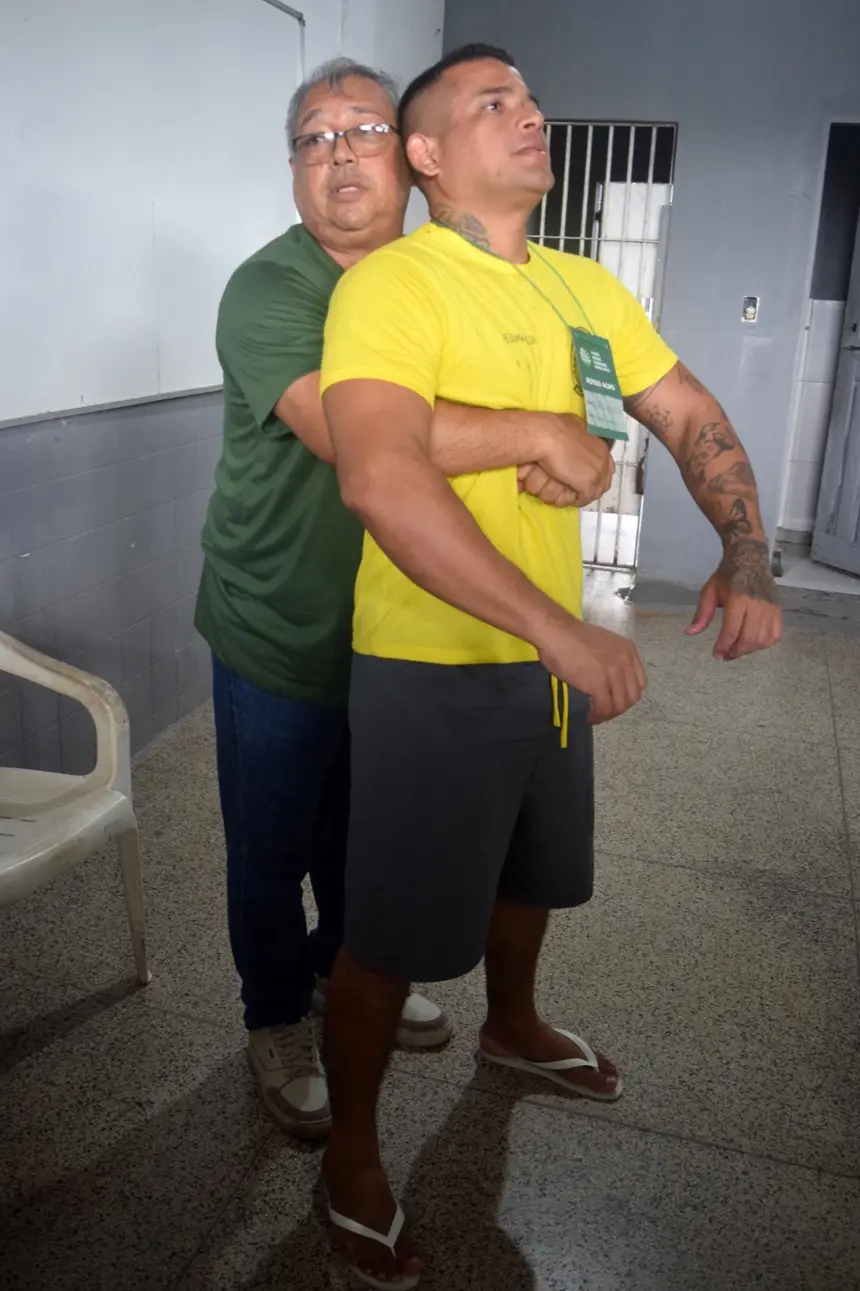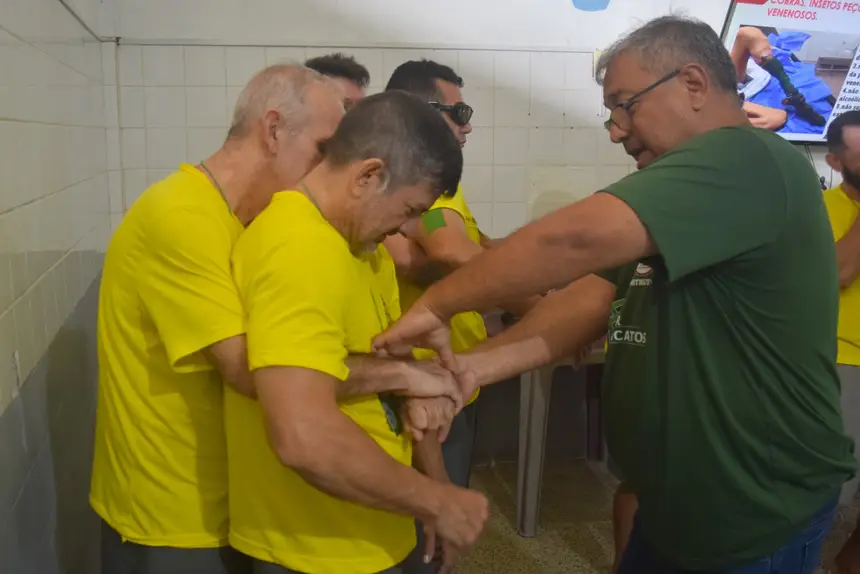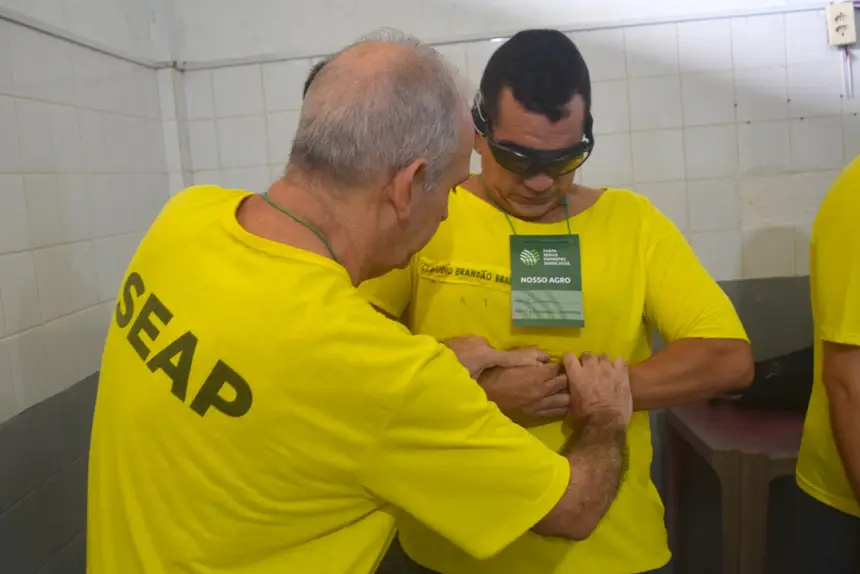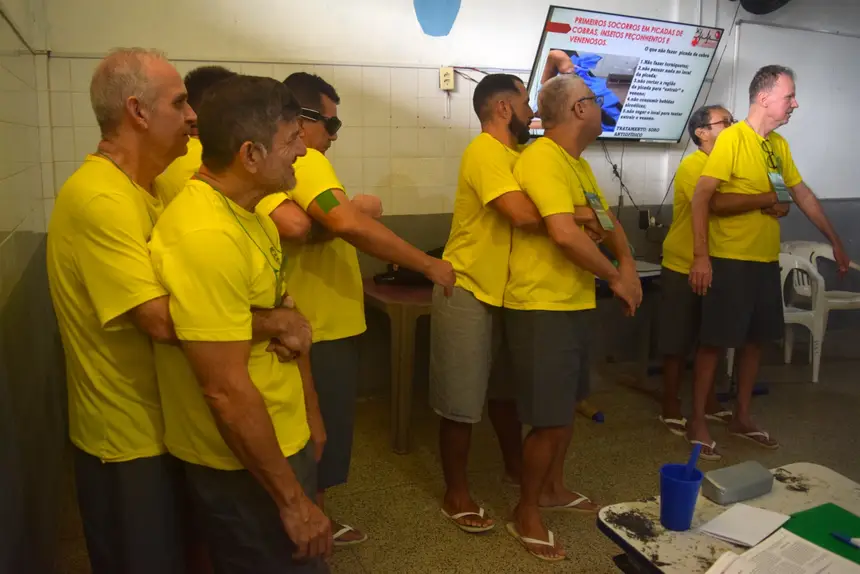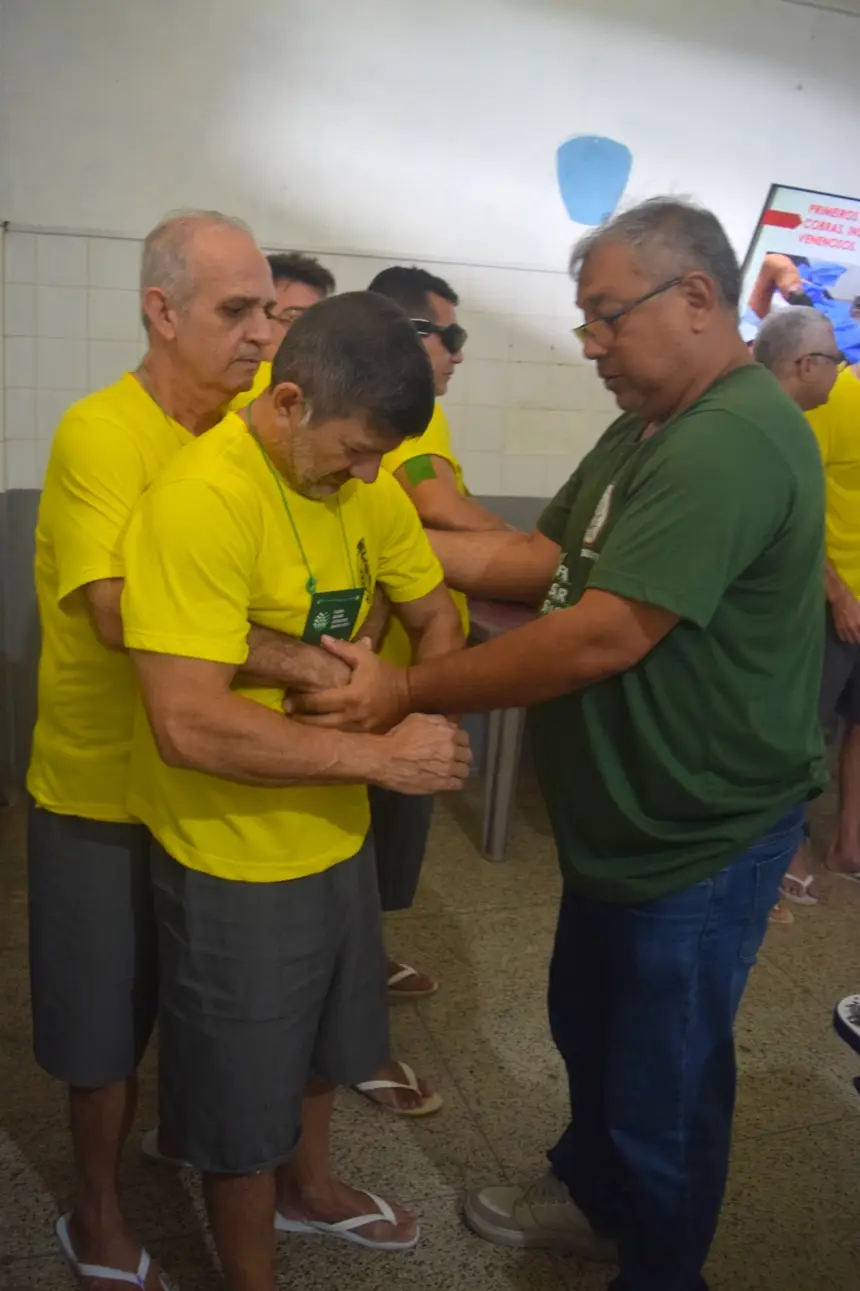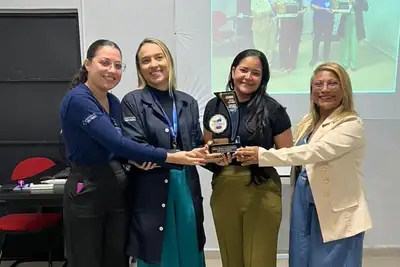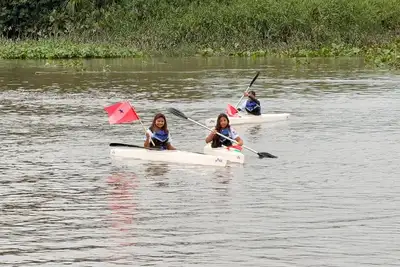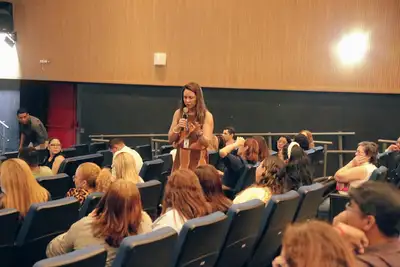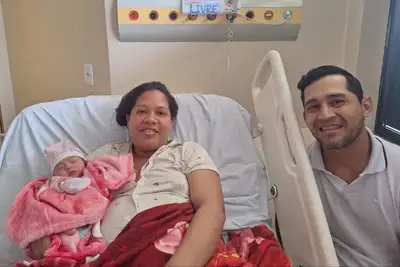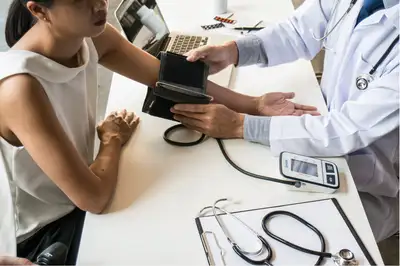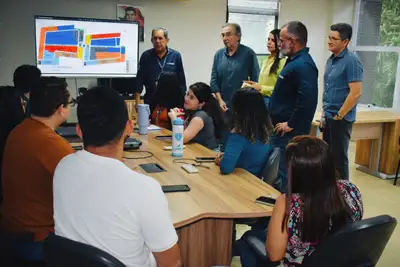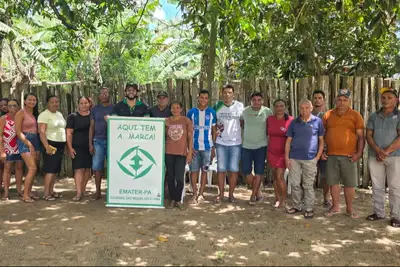First Aid Training Strengthens Reintegration Actions in Santa Izabel
Partnership with Senar offers nationally recognized training and reinforces Seap's commitment to reintegration
The partnership between the National Rural Learning Service (Senar) and the State Secretariat for Penitentiary Administration (Seap) has initiated the Basic First Aid course. The course, in addition to promoting reintegration, allows detainees to learn initial first aid concepts, also ensuring nationally recognized professional certification.
The course has a workload of 40 hours. In total, 15 Persons Deprived of Liberty (PPLs) from the Custody and Reintegration Unit of Santa Izabel I (UCR I) are participating in the training. The classes are conducted in groups of two students, where one practices on the other, and all the modules covered in theory are practiced. Informed the Senar instructor, Paulo Couto Junior.
Paulo clarified that this is the third class he teaches the course, whose curriculum is delivered in blocks, covering basic general Anatomy and Vital Signs. Students also have access to instruments used for the course practice such as: bandages, gauze pads, and cardboard for immobilization splints. They also learn to perform first aid in cases of: Electric shocks; Cardiac arrest; Trauma; Choking (Heimlich maneuver); Intoxication by all routes; Hemorrhages; Burns; Poisonous and venomous animals and insects.
"It will provide knowledge for the people here about first aid, so that they can assist an injured person who needs first aid and know what to do correctly. So that this person who needs first aid has a chance of survival until medical assistance arrives at the scene. This contributes not only to them but to the daily life of the unit," explains the instructor.
Paulo argues that conducting the course is important, as small accidents occasionally occur in the daily life of the units, and often people do not know how to proceed. "Now they will know," he says. Another point he highlighted refers to the certification granted by Senar at the end of the course.
"The certificate is recognized by the MEC (Ministry of Education) nationally, and the person will be able to be a rescuer just with this certificate. So, it will also help in their exit from here to have a job opportunity," he explained.
Anderson José Oliveira, 42 years old, is one of the course participants, this being the third qualification course he participates in, having already completed the Hygiene and Cleaning course and the Hairdresser and Barber course. He considers any opportunity for qualification courses offered by Seap and other partners like Senar to be of utmost importance.
"Any type of program that can insert us into reintegration and provide a new qualification, a new learning experience, also serves a lot and especially to occupy the time we have here, in the Penal House which has plenty of space for many projects and increasingly reintegrate us into the coexistence with those who come from outside, in the coexistence with new techniques, new professions, which will help us a lot in our social reintegration," he justifies.
Anderson also emphasizes that the new knowledge can help in any eventuality that may occur, and that requires the use of first aid techniques.
"We are learning techniques that no one here had knowledge of, which could facilitate and help in an accident situation. This course, both for us who are already sentenced, should be expanded to all other detainees in the Penal House because it is great," declared Anderson.
Cleber dos Reis Gonçalves, 51 years old, also approved the First Aid course. He is in his second course, having already completed the nursery creation course, also a Seap/Senar partnership. In addition to ensuring new knowledge and professional qualification, Cleber emphasizes that the training contributes to sentence remission.
"We are all taking advantage of the moment to gain new knowledge, which sometimes we didn't have outside, it is of utmost importance. This course, as it is 40 hours and gives 3 days of remissions and 4 hours, has a great benefit for all inmates," stated Cleber.
Cleber took the opportunity to thank for the opportunity of the courses offered by the secretariat. For him and his companions, it is an opportunity to demonstrate that they are on the path of reintegration and betting on a change of life at the end of their sentences.
"If God wills, we will follow life, it will be prosperous, we will take care of our families, we will take care of our children, our relatives, live socially well, because, unfortunately, due to life situations, we are here. But we do not intend to return, we are not criminals. We are very grateful to Seap for this opportunity to be here speaking and expressing our goodwill to contribute to the work of Seap, the authorities, and certainly the house," said Cleber.
More tranquility – The director of UCR I, Oseas Gomes, argues that conducting this type of course for inmates brings benefits to the daily life of the penal unit, as it fulfills the reintegration goals advocated by Seap and also generates better prospects in life after incarceration.
"It is important for the evolution of the detainee, for their return to society, social coexistence as well, and we see all the benefits within the development of the PPL. This contributes to bringing greater tranquility to us. Even on the day of the course, the prison population is calmer, they are included in the course, in this goal, being positive. This benefit for them inside the prison, taking advantage and coming out a better person," he concluded.
Text: Márcio Sousa/ Seap


